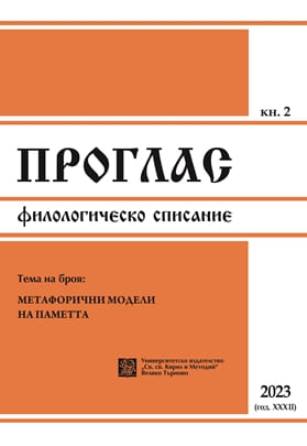Продуктивността на наставките в отглаголните съществителни в суахили в лексикално-семантична перспектива
Lexical-Semantic Account of the Productivity of the Deverbalizing Suffixes in Swahili
Author(s): Prisca MakuliloSubject(s): Language and Literature Studies, Theoretical Linguistics, Morphology, Lexis
Published by: Великотърновски университет „Св. св. Кирил и Методий”
Keywords: Bantu languuages; deverbalization; suffixes; productivity
Summary/Abstract: This paper investigates the productivity of deverbalizing suffixes in Bantu Swahili, focusing on semantic verb types and semantic content. The paper addresses two questions: Which deverbalizational suffixes can be assigned to the activity, inchoative, and stative verbs in Swahili? Does the semantic content of the source verb remain silent (mute) in the process of assigning suffixes to the resultant deverbative in Swahili? The investigation has been incited by lack of linguistic knowledge of the mentioned aspect in many Bantu languages. The study analyzes 500 verbs from the Swahili-English dictionary (TUKI 2014). The productivity has been measured through the number of actual words formed and the type-frequency parameters as per individual deverbal suffixes. The conclusion has been drawn that the deverbal suffix -o is productive in activity and stative verb clusters, while the deverbal suffix -u is productive in inchoative and stative verb clusters. The deverbal suffix -e is productive in stative and activity verb clusters. The deverbal suffix -i is productive in all three verb clusters. However, the resultant deverbative nouns in Swahili retain their original semantic content.
Journal: Проглас
- Issue Year: 32/2023
- Issue No: 2
- Page Range: 165-173
- Page Count: 9
- Language: English, Bulgarian

